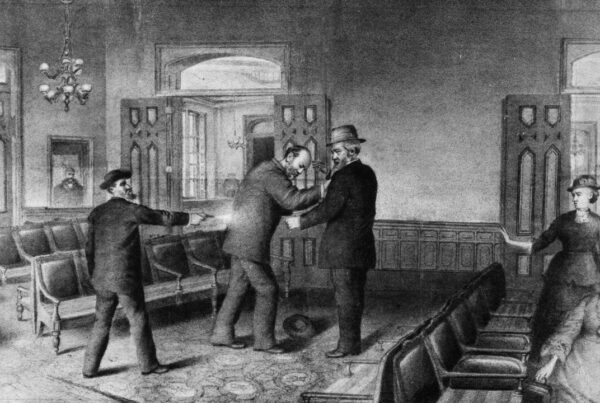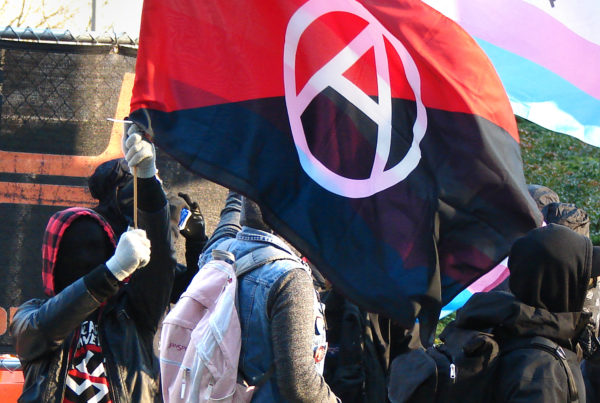Alternative Names:
Harakat al-Jihad al-Islami fi Filistin, Saraya Al-Quds (The Jerusalem Brigades), Al-Quds Brigades, Islamic Jihad, Palestine Islamic Jihad-Shaqaqi Faction, Palestinian Islamic Jihad-Shaqaqi, PIJ-Shaqaqi Faction, PIJ-Shallah Faction, Islamic Jihad of Palestine, Islamic Jihad in Palestine, Abu Ghunaym Squad of the Hizballah Bayt Al-Maqdis, Al-Quds Squads, Al-Awdah Brigades, Islamic Jihad Palestine (IJP), Islamic Jihad – Palestine Faction and Islamic Holy War
Location:
Primarily Gaza with minimal operational presence in the West Bank and Israel.
Leadership:
The group’s most prominent leader was Dr. Fathi Shqaqi. He was assassinated in 1995.
The founders of the Palestinian Islamic Jihad, Fathi Shaqaqi and Abd al-Aziz Awda, were students in Egypt and members of the Egyptian Muslim Brotherhood until the late 1970s. The two believed the Muslim Brotherhood was becoming too moderate and insufficiently committed to the Palestinian cause, and decided to leave in pursuit of this cause.
The group’s senior leadership resides in Syria, while some other leadership elements reside in Lebanon, and official representatives are scattered throughout the Middle East. In 2009 much of the group’s leadership was arrested or killed, however, the group remains active.
Membership:
PIJ was estimated in 2013 to have fewer than 1,000 members.
Funding Sources:
Received financial assistance from Iran and limited logistic assistance from Syria. The Government of Iran has used Bank Saderat to channel funds to the Palestine Islamic Jihad.
Origins
Founded in the late 1970s, the Palestinian Islamic Jihad (PIJ) is one of the most violent Palestinian terrorist groups. The PIJ originated among militant Palestinians in the Gaza Strip region. The group believes that armed struggle in coordination with active support from the Arab and Muslim worlds is the only viable way to achieve the destruction of Israel and liberation of Palestine.
The group originated in Egypt, until 1987 when the group was exiled to Lebanon following the assassination of President Anwar Sadat. It was in Lebanon the group began to receive training and resources from Hizballah and the Iranian Revolutionary Guards.
Currently the group is a very small, highly secretive organization that operates primarily underground due to a loss of popular support.
Major Attacks:
Over the course of the past decade, most PIJ attacks have taken the form of suicide bombings or rocket firings into Israel.
August 1987: A shooting killed the commander of the Israeli military police in the Gaza Strip.
December 1993: A shooting killed Israeli reservist David Mashrati aboard a bus.
April 1994: Car bomb aboard a public bus. (9 killed, 50 wounded)
January 1995: Suicide bombers executed coordinated attack at a bus stop. (19 killed, 61 wounded)
March 1996: A suicide bomb at a Tel Aviv shopping mall. (13 killed, 75 wounded)
June 2001: A suicide bomb attack on a Tel Aviv nightclub. (21 killed)
June 2002: suicide attack at the Meggido Junction. (18 killed, 50 wounded)
October 2003: suicide bomb at a Haifa restaurant. (22 killed, 60 wounded)
October 2005: bomb at a Hadera market. (5 killed)
April 2006: suicide attack in Tel Aviv. (11 killed)
January 2007: suicide attack at an Eilat bakery. (3 killed)
Ideological Roots:
The PIJ has allegedly been inspired by the Islamic Revolution in Iran and this has been the basis for its actions to promote radical fundamentalist Sunni Muslim ideology in the Gaza Strip.
Objectives:
The PIJ seeks the immediate “liberation” of Palestine and the destruction of the Israeli state. They refuse any arrangement or agreement as well as participation in the political process.
Tactics:
The PIJ was among the first to use suicide bomb attacks against Israel. Rocket attacks, suicide bombings and small arms attacks make up the majority of their activities.
Updated on January 21, 2016.







